There’s nothing more adorable than a baby enjoying her first foods. It's bound to be a colorful experiment as your little one learns just how to navigate the difficulties of feeding herself, not to mention as she comes across some foods she outright hates. Some will become life-long favorites, sure, but others will be rejects coating the wall on the opposite side of the kitchen.
As it turns out, this isn’t just a time of learning and exploration for baby — parents have to figure things out, too. There are lots of different ways to introduce solid foods to your baby, and lots of different opinions on which foods make the best options. Then there’s the question of when and in what order to introduce foods. It can be difficult to know which foods are appropriate (and safe), and how to keep your little one safe from food allergies.
Have you ever wondered if your little one can eat eggs? If so, we can’t blame you: egg’s reputation has been on quite the roller coaster in recent decades. First it was considered healthy, then it wasn’t due to its high cholesterol content (according to the USDA, a single egg contains 186 mg of cholesterol, which amounts to two-thirds of the recommended daily allowance for an adult). Then, doctors recommended against feeding egg whites to a baby due to concerns about allergies.
Below, we’re going to unscramble some of the myths about eggs and when babies can eat them.
When Can Babies Start Eating Eggs?

If you’re wondering when your baby can eat eggs, you’re not alone. In the past, it was recommended to hold off serving eggs to babies until at least 12 months of age, mostly because eggs are a highly allergenic food. However, recent research has shown that introducing eggs to babies as young as 6 months of age can actually prevent the development of an egg allergy. Since eggs are super soft and easy to mash, they may actually be on their way to becoming one of the best first foods to share with baby.
Nutritional Benefits Of Eggs For Babies
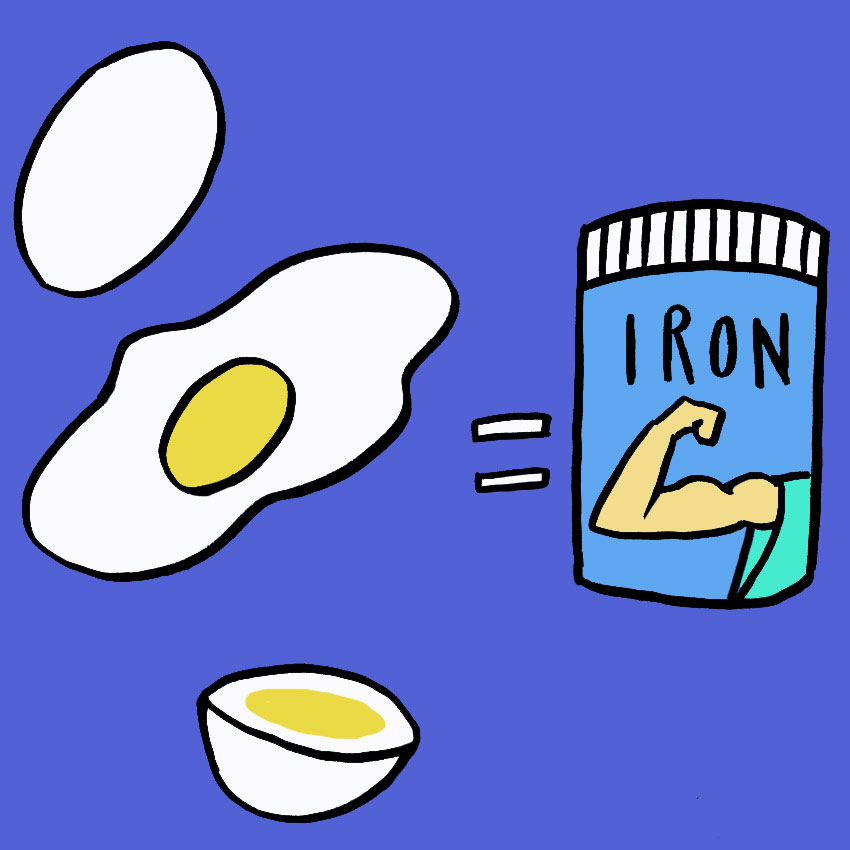
According to Today’s Parent, “Egg is an excellent source of iron-containing protein, and therefore an amazing food to give your baby, as their iron stores start to decrease after 6 months of age.”
Iron levels can drop as babies begin to naturally wean off breastmilk or formula, which happens right around 6 months of age as they begin exploring first foods. An egg is a great way to boost iron levels in babies — according to the USDA, one large egg contains up to 88 mg of iron.
Which Parts Of An Egg Are Safe For A Baby?
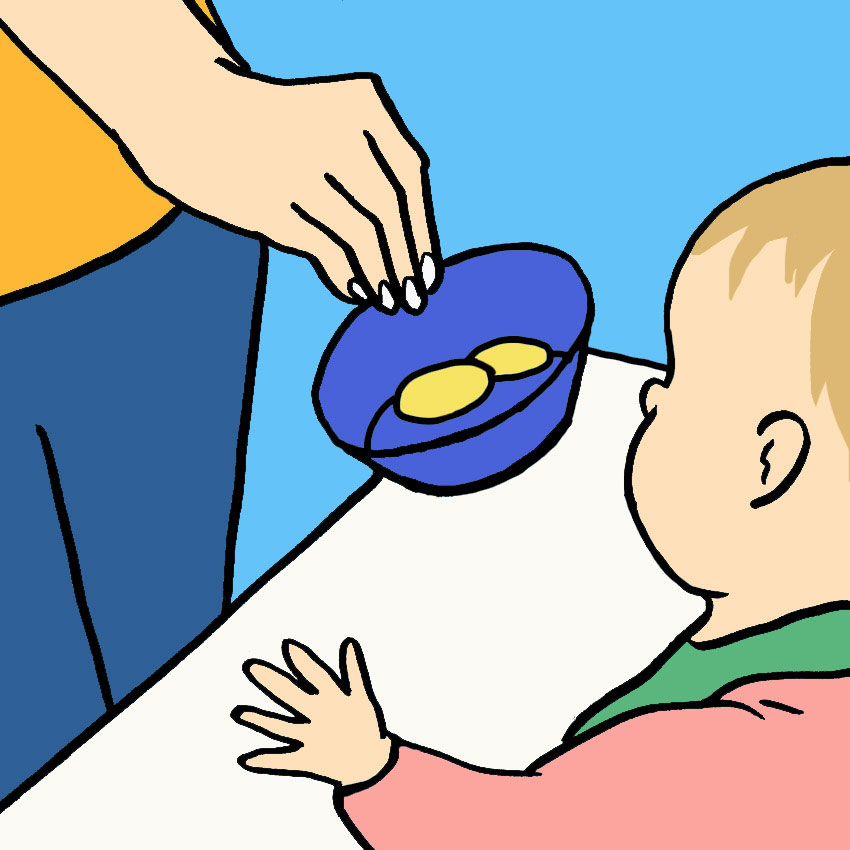
Thoroughly cooked egg yolks are apparently a great way to wean infants off breast milk. According to WebMD, "This may be an easy and practical way to provide iron and other much-needed nutrients that may become depleted during this time." However, every online source has differing opinions, so remember to consult your pediatrician if you aren't completely certain about adding something new into your baby's diet.
How About Egg Whites?
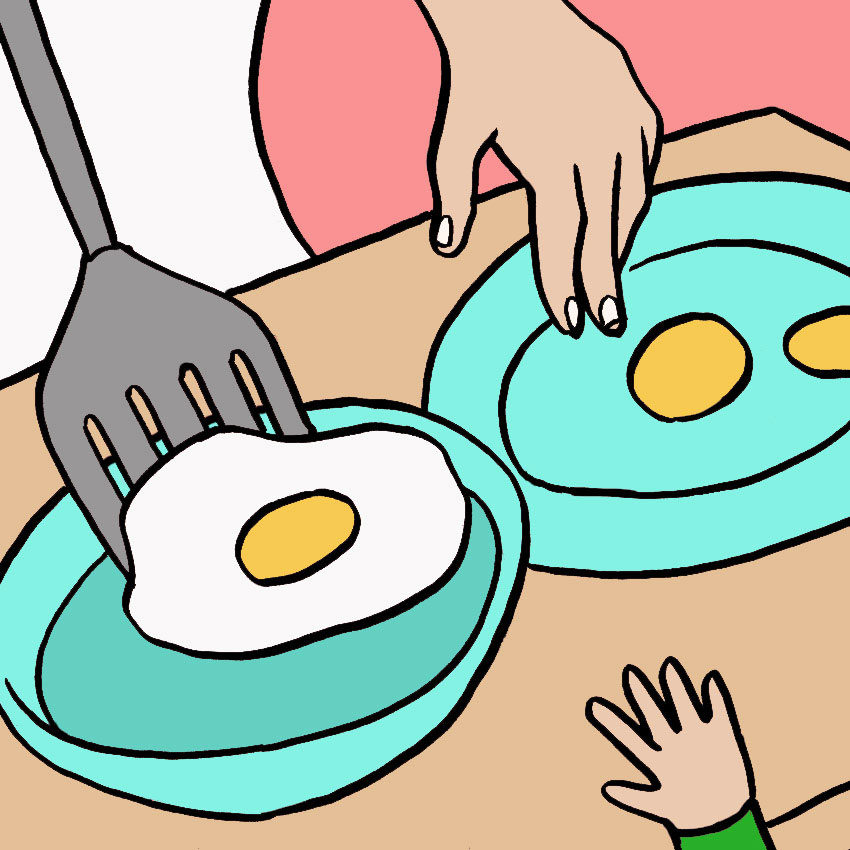
But can your baby eat egg whites? This question may be best left to your pediatrician, as it seems the jury is out on this one. For every doctor that encourages starting egg whites as early as 6 months to prevent allergies, there’s another who insists parents should stick with only the yolk until at least 12 months, or even later.
Potential Egg White Dangers
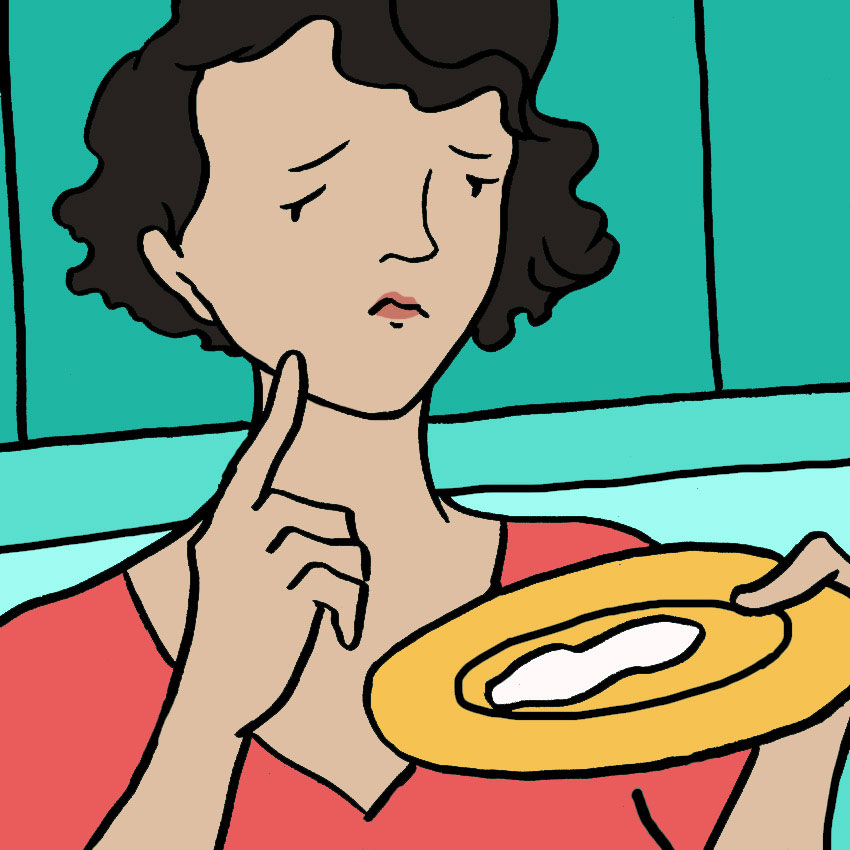
The one thing that everyone can agree on is that egg whites are the part of the egg that can cause allergic reactions, so be sure you are well informed about egg allergies and the signs of an allergic reaction (more on that later!) prior to feeding egg whites to your baby.
Can Babies Eat Hard-Boiled Eggs?
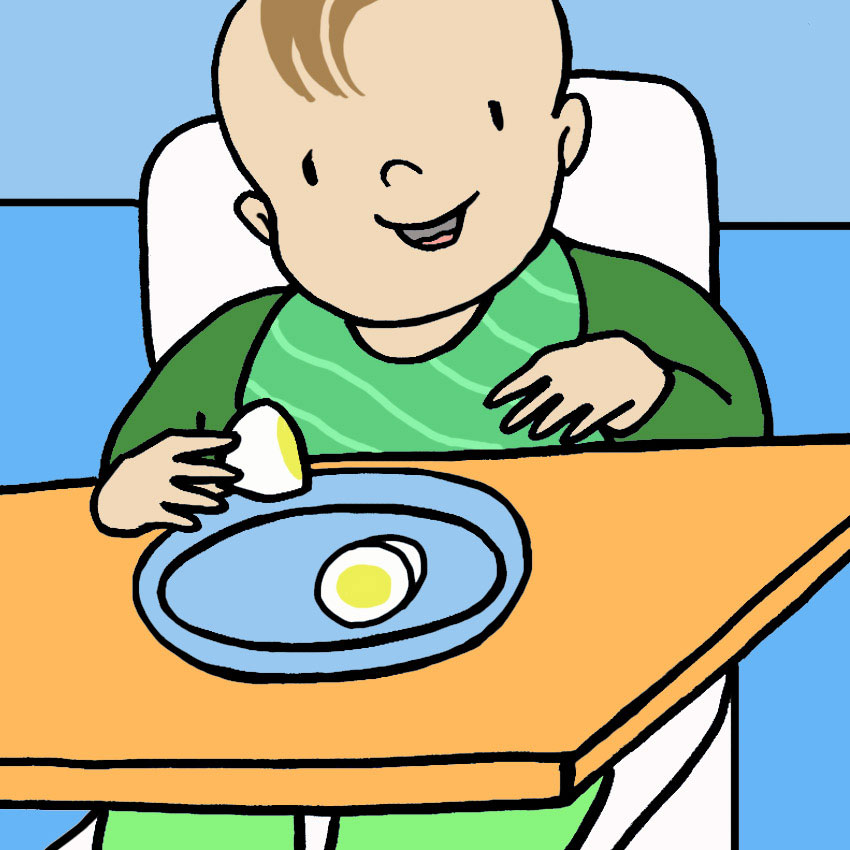
Hard-boiled eggs are pretty much the best first eggs for baby, since you can easily remove the yolk and serve it alone if you decide to skip the whites. Then, once you feel comfortable, you can simply peel the egg and let your baby go to town, mashing it up and putting that splat mat to good use.
According to livestrong.com, “Offer your baby whole, hard-boiled eggs once you determine he does not have a negative physical reaction to egg yolk. If your baby shows no allergic symptoms to the whole egg, begin serving scrambled and other well-cooked egg dishes.”
Egg Allergies
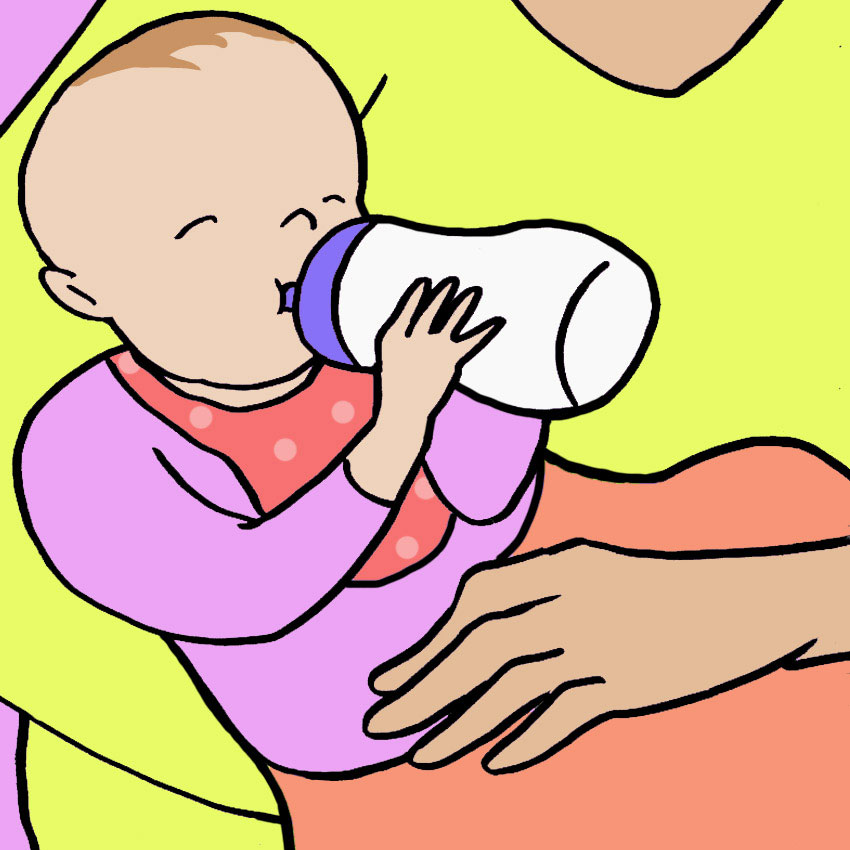
Eggs are healthy, full of iron, and easy for baby to eat and digest. Plus, they’ll keep your baby feeling full longer than many other breakfast foods. So, are there any drawbacks to the incredible, edible egg? According to livestrong.com, “allergy to egg is one of the most common food allergies in infants.”
Despite this, remember that babies can be exposed to eggs through breast milk and a whole host of other foods where eggs are used as an ingredient. So, your baby’s first exposure to eggs may not truly be her first true exposure.
Signs And Symptoms Of Allergies
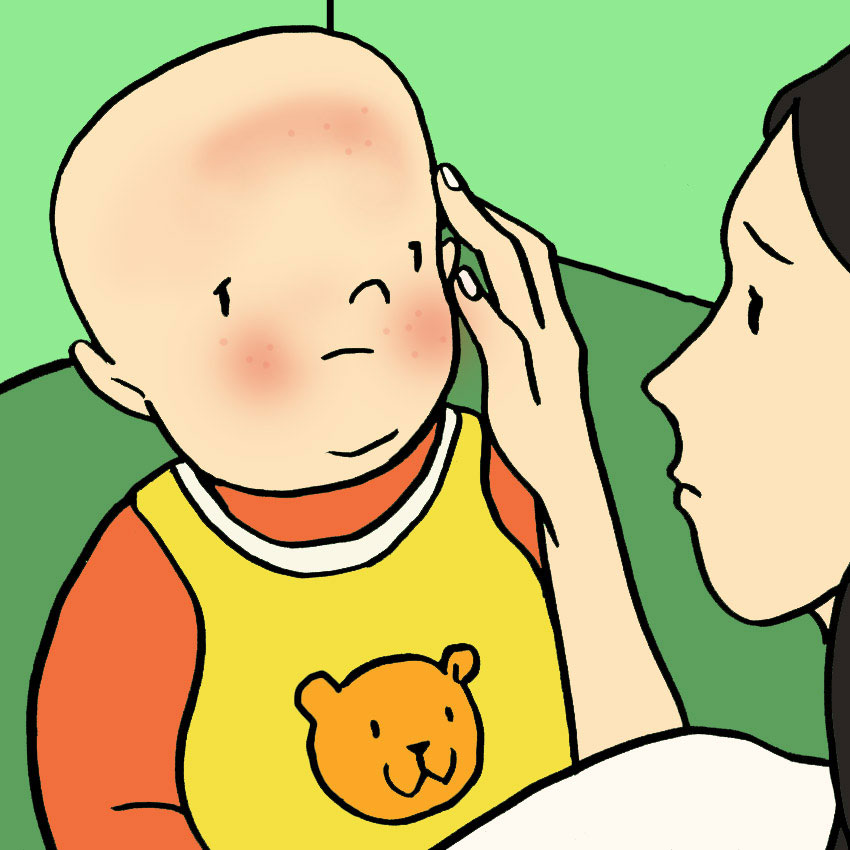
No matter when you choose to introduce eggs to your baby, be sure to wait a few days before introducing any other new foods, and monitor her for signs of an allergic reaction. According to verywell.com, these can include the following:
- Wheezing and difficulty breathing
- Skin reactions like rash, hives, or eczema
- Red or watery eyes
- Stomach pain, nausea, diarrhea, or vomiting
What’s your opinion on when a baby can eat eggs? Have you given eggs to your little one? Please SHARE this article with anyone who could learn from it!




